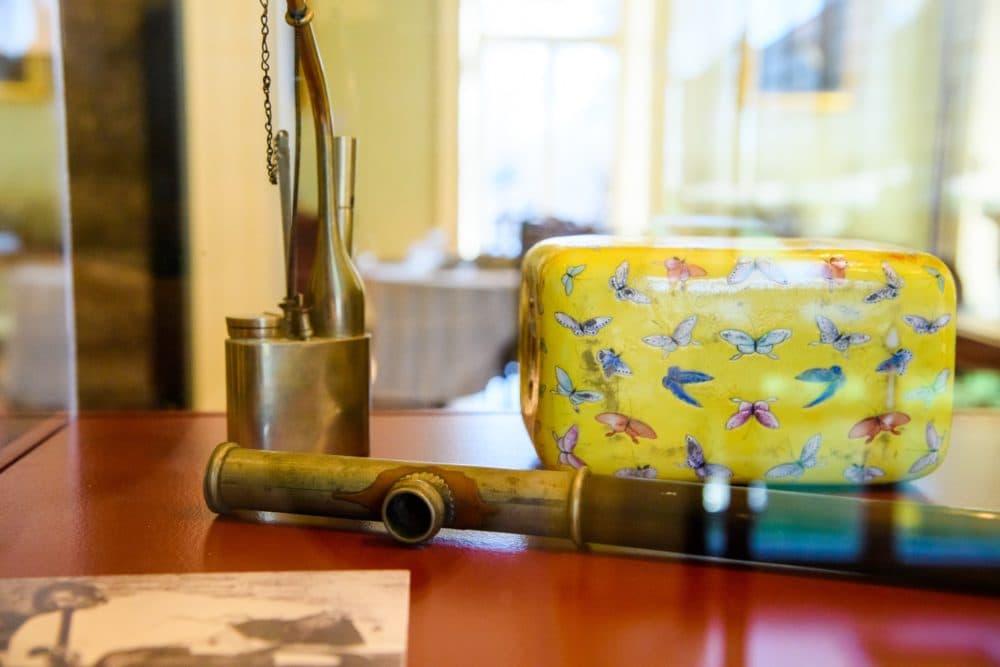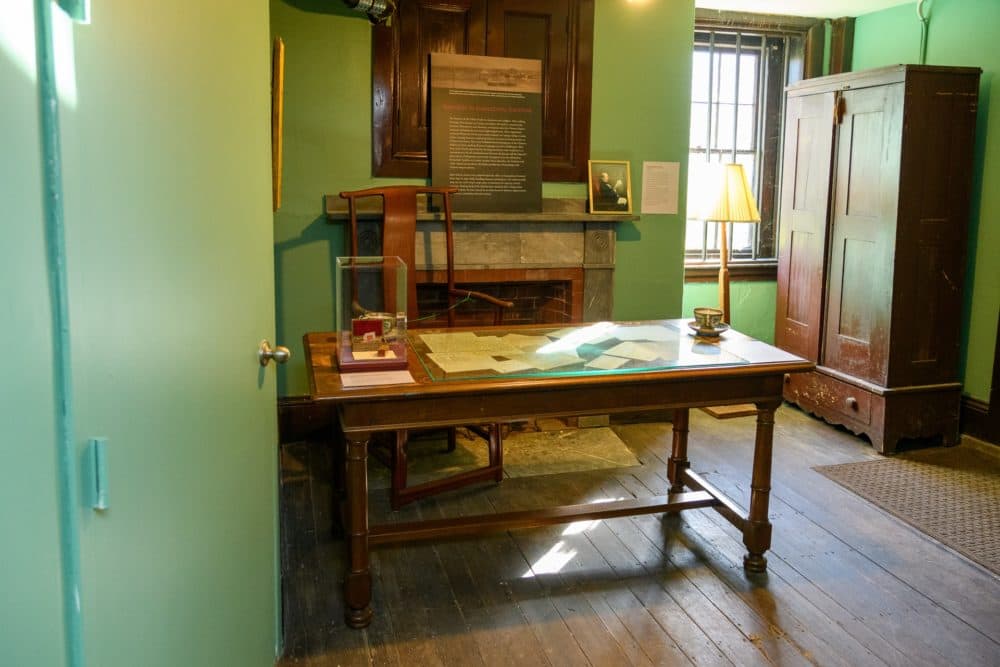Advertisement
The Forbes mansion was built with opium money. Now, an exhibit reckons with Boston's lesser known history

The Forbes’ mansion, now called the Forbes House Museum, was built in 1833 with profits from the China opium trade. Now, for the first time, the museum is focusing on that past. Its new exhibit, “Opium: The Business of Addiction,” is part of a slow reckoning of this dark and not well known piece of Boston’s legacy.
“We hope this exhibition will shed new light on a period of history that’s often misunderstood or overlooked,” said Heidi Vaughan, the Forbes House Museum executive director in a statement.
The exhibit introduces members of the Forbes and Perkins families. Thomas Handasyd Perkins and his brother James Perkins began shifting their shipping empire from the slave trade to the China trade in the early 1800s.
American traders delivered vast quantities of illegal opium to China, smuggled it into the country through a network of bribery and deception, and used the profits to purchase tea, porcelain, silk and other cloth. The sale of those goods in Boston and beyond made the Perkins brothers and their nephews — Robert Bennet Forbes and John Murray Forbes — rich.
The exhibit explores the early relationship between China and the U.S. that started with the opium trade and introduced what Chinese leaders have called a century of humiliation.
“In this exhibition, the museum acknowledges the harm that persists to this day as a result of the opium trade. Generations of Chinese families have suffered,” Vaughan said. “We hope to provide a transparent and balanced accounting of the history, but it’s very complicated.”
Ben Forbes, as he was known, built the Milton mansion in 1833. He filled it with sets of china dishes, vases, delicately carved tables and chairs, and lots of silk. The exhibit includes chests in which Forbes hid hardened cakes or balls of opium underneath rice to elude detection. There are maps of the routes that ships based in Boston, Salem, Providence and other East Coast ports would take on journeys that could last two or three years.

The Forbes were among many Boston Brahmin families whose wealth can be traced to this trade. The profits helped establish Perkins School for the Blind, Massachusetts General Hospital, the Boston Athenaeum as well as mills and railroads that launched the country's industrial revolution.
There are signs the opium trade also fueled a mid-19th century problem with addiction in Boston, something historians are working to uncover. The Forbes House Museum is partnering with the Milton Public Library to provide resources and discussions about the current opioid crisis.
The exhibit also raises questions about the opium trade and its effect on U.S.-Chinese relations, current anti-Asian sentiment and the role of philanthropy in addressing wrongs.
“There are lots of interesting subjects that are very relevant to our lives today,” said Vaughan. “We hope we’ll get a lot of people thinking about and discussing them long after they leave our exhibition.”
“Opium: the Business of Addiction,” runs through March 2023.
